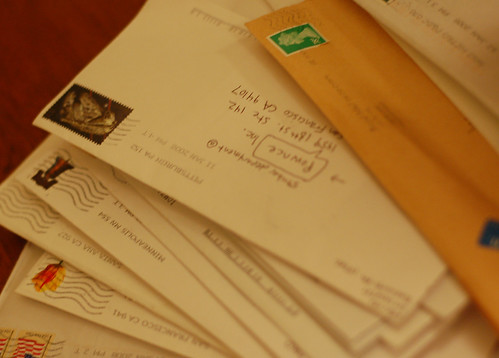The publishing industry is a traditional world institution, and it's an open secret that book sellers and literary agents are looking for certain qualities in the authors and books they choose to support. Many writers turn to self-publishing to avoid all those rejection letters and bad feelings, and some indies who have thumbed their noses at the traditional publishers are laughing all the way to the bank. But if you think that self-publishing is going to save you from getting rejected, you're wrong.
Rejection Letters
As an indie writer who self-publishes, you aren't going to be receiving those rejection letters and emails anymore. However, you're exposing yourself to something that hurts just as much: public reader reviews. If you thought those form letters were bad, you haven't seen anything yet.
Reader Reviews
Indie writers still get rejected, and frequently, by the general reading public. It takes very little effort to access a link, click a button and write "this sucks" on someone's hard work, and indie forums are filled with writers who have been struck with seemingly mean-spirited one-star reviews. These comments can be much more painful than receiving rejection letters, because these comments are from people who actually read and even purchased your work. Your job, as a self-published author, is to take in those comments and truly attempt to understand what the readers are telling you...no matter how much it hurts.
Admittedly, if a reader has nothing more to say than "you suck," it's going to be rather difficult to know where exactly you went wrong in their eyes. But the majority of readers who bother to leave a review do have something worthwhile to say, especially if that "something worthwhile" is negative. We would all love to receive nothing but 5-star reviews that praise our work in superlatives, but that's not very likely -- nor is it at all helpful. Only through criticism do writers get better, and no one is so amazing at their craft that every single reader responds with gushing, glowing praise (no one).
You have to learn how to look at your reviews, and each comment therein, objectively. A negative review may feel like a punch in the gut, but most of the time it is neither a personal attack nor hateful criticism. In many cases, even negative reviews have honest feedback to offer, and you do yourself a disservice if you don't pay attention. Look at the reviews, read each word, and try to figure out what your readers are saying.
Readers aren't always easy to understand, so you may have to read carefully and think about what they're saying to you. If a reader says the book doesn't flow well or that it's slow-paced, look at your novel and try to locate points when the plot slows down or stands still altogether. Sometimes, very lengthy descriptions can slow down a book's pace. Try spreading those descriptions out a bit, breaking them up with action and dialogue, to make the book feel a little faster and more interesting. If the reader says your dialogue is stiff or stilted, take the time to read spoken passages out loud to yourself. Always ask yourself if this is really how people sound. When you hear the words out loud, you may find there are many little changes you can make.
If a reader complains about your formatting, justification or spelling, there's no reason to leave those mistakes in place. Edit and re-edit -- and re-edit again -- as many times as needed until you know you're presenting a visually stunning, technically perfect work. Don't allow your book to get bad reviews for something that's so simple to fix...especially justification (because I cannot stress this to you other indies enough, and I can never expound enough on how ugly left justification looks on the Kindle).
Now, if your reader says something about your personally ("this writer smells bad," "this writer is ugly," "I think this writer is a Republican") then you have grounds for dismissal. Clearly you don't need to pay attention to these personal comments, and you are well within your rights to flag the review and ask Amazon (or whoever) to remove it. But don't confuse criticism and feedback with a personal attack. If someone says, for example, "this writer isn't a very good writer," that is a real criticism. You might try looking at your other reviews, and re-reading your work, to find out why someone might make such a hurtful statement.
Because here's the best part of being an indie: you're in control, so you always have the option of changing and improving your book. Those traditional guys? They put their stuff on paper, and then it's practically set in stone. While their books never change, yours can always continue to get better and better. Bad reviews are really just a first offer; you can change your content, and start turning those negatives into glowing positives if you really pay attention and keep an open mind. Your book is your baby if you're like most writers, but it isn't perfect and neither are you. If you can't take negative feedback and respond to it in a professional manner, get out of the industry.
Rejection is always everywhere when you're a writer, and that's a fact you've got to face...or you've got to leave.











0 comments:
Post a Comment